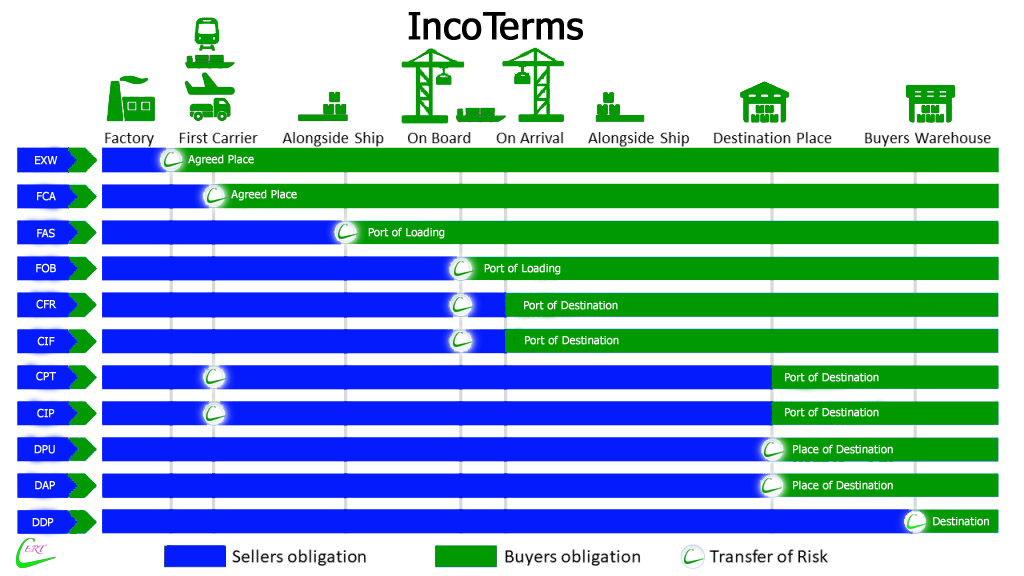Delivered At Place (DAP)
Can be used for any transport mode, or where there is more than one transport mode.
The seller is responsible for arranging carriage and for delivering the goods, ready for unloading from the arriving conveyance, at the named place. (An important difference from Delivered At Terminal DAT, where the seller is responsible for unloading.)

Risk transfers from seller to buyer when the goods are available for unloading; so unloading is at the buyer’s risk.
The buyer is responsible for import clearance and any applicable local taxes or import duties.
This rule can often be used to replace the Incoterms 2000 rules Delivered At Frontier (DAF), Delivered Ex Ship (DES) and Delivered Duty Unpaid (DDU)
Delivered At Place (DAP): Further information
If the specified place is an inland clearance depot, a free trade zone or similar, then use of this rule is straightforward – the goods can be delivered uncleared.
However complications can arise if the goods have to go through a clearance point before delivery. Clearance of the goods may require close liaison between the carrier and the buyer, and where this goes wrong, there can be delays and disputes about demurrage.
(Typical issues: buyer needs to present original documents to authorities to obtain clearance.)
For more details regarding the updated 2020 terms, please speak with your nominated shipping company or refer to the International Chamber of Commerce.
There are two key changes in Incoterms ® 2020 compared to the last edition:
- DAT (Delivered at Terminal) is renamed Delivered at Place Unloaded (DPU)
- FCA (Free Carrier) now allows for Bills of Lading to be issued after loading
Other changes include:
- CIF (Cost, Insurance and Freight) and CIP (Carriage and Insurance Paid To) set out new standard insurance arrangements, but the level of insurance continues to be negotiable between buyer and seller.
- Where listed, cost allocation between buyer and seller is stated more precisely – one article lists all costs the seller and the buyer are responsible for.
- FCA (Free Carrier), DAP (Delivered at Place), DPU (Delivered at Place Unloaded) and DDP (Delivered Duty Paid) now take account of buyer and seller arranging their own transport rather than using a third party.
- Security-related obligations are now more prominent.
- “Explanatory Notes for Users” for each Incoterm® have replaced the 2010 edition’s Guidance Notes, and are designed to be easier for users.
- CIP now requires as default insurance coverage ICC A or equivalent. It was ICC C under Incoterms® Required insurance coverage under CIF remains.


